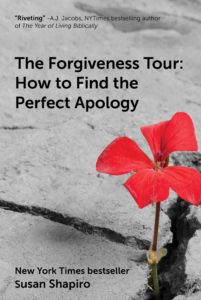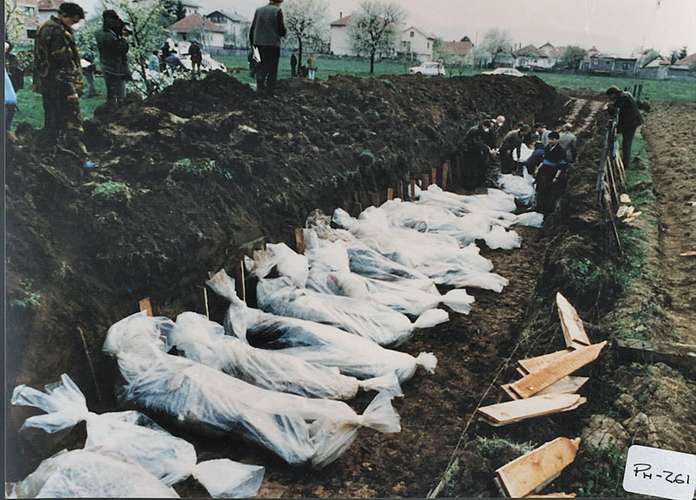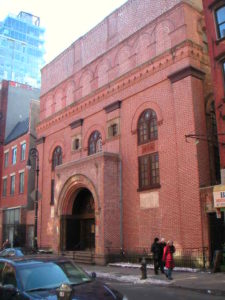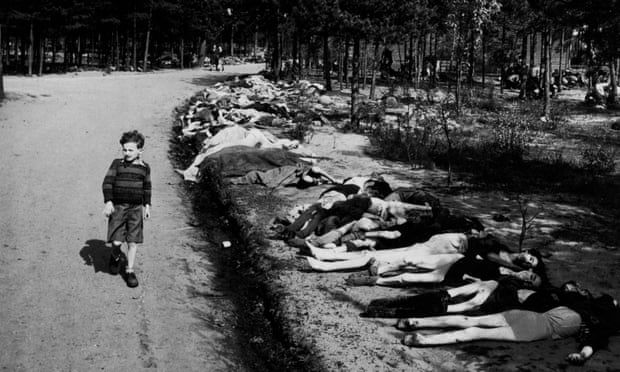The Forgiveness Tour: Can You Forgive A Whole Continent Who Betrayed You?
An acclaimed writer meets with a Holocaust survivor to learn about the possibilities and limits of forgiveness
 “To err is human; to forgive divine.” But what if the person who hurt you most refuses to apologize or express any regret? That’s the question haunting journalist Susan Shapiro when the mentor she’s trusted for 15 years lies and betrays her. She ends their relationship and vows they’ll never speak again. Yet ghosting him doesn’t end her distress. In her new memoir The Forgiveness Tour, Shapiro explores the billion-dollar Forgiveness Industry touting the personal benefits of absolution, where the only choice on every channel is: radical forgiveness. She fears it’s all bullshit. Desperate for enlightenment, she surveys her old rabbis and other religious leaders. Unable to reconcile all the confusing abstractions, she embarks on a cross-country journey where she interviews 13 people who suffered unforgivable wrongs that were never atoned. Her new gurus soothe her broken psyche and answer her burning mystery: How can you forgive someone without an apology? Does she? Should you?
“To err is human; to forgive divine.” But what if the person who hurt you most refuses to apologize or express any regret? That’s the question haunting journalist Susan Shapiro when the mentor she’s trusted for 15 years lies and betrays her. She ends their relationship and vows they’ll never speak again. Yet ghosting him doesn’t end her distress. In her new memoir The Forgiveness Tour, Shapiro explores the billion-dollar Forgiveness Industry touting the personal benefits of absolution, where the only choice on every channel is: radical forgiveness. She fears it’s all bullshit. Desperate for enlightenment, she surveys her old rabbis and other religious leaders. Unable to reconcile all the confusing abstractions, she embarks on a cross-country journey where she interviews 13 people who suffered unforgivable wrongs that were never atoned. Her new gurus soothe her broken psyche and answer her burning mystery: How can you forgive someone without an apology? Does she? Should you?
In the following excerpt, Shapiro meets with a Holocaust survivor to learn about his experience and if he believes forgiveness is always possible.
***
“Susie, good to see you,” Manny said, using my old nickname. “Tell me about your Bosnia project.”
I’d been nervous to meet with Emanuel Mandel (a.k.a. Manny) at Sea Catch restaurant in Washington D.C., in November, 2010. He’d been a buddy of my father’s for half a century. I hadn’t seen him since my wedding sixteen years before. As a Hungarian Jew, he’d been the victim of ethnic cleansing. His mother was from the former Yugoslavia, which riveted me since I was working on a book with Kenan, a 12-year-old exile of the Bosnian war.
“Kenan’s like the Muslim Anne Frank who lived to tell the story,” I said, sitting down. “It’s shocking that most Americans don’t know there was another holocaust in Europe in 1993.”
“Well, we only use Holocaust for what happened to the Jews in Eastern Europe in World War II,” he corrected. “I survived Bergen-Belsen, where Anne Frank died.”
Damn. In seconds I’d insulted a 74-year-old survivor, psychotherapist, and family friend. Growing up I’d found Manny intimidating, with his strong baritone voice. He was more erudite than other Midwest dads. He was the only person I knew, aside from Kenan, who’d escaped genocide as a kid and knew the Balkans. “I’m sorry,” I said.
“I use genocide, not holocaust,” he clarified. “It’s despicable Serbs murdered their country-men. But in our case, Germans went into twenty other nations to kill Jews. Because of the number and magnitude of Hitler’s Final Solution, we feel proprietary about the word.”
As the waiter brought menus, I kept apologizing, but Manny said it wasn’t necessary. After falling out with my long-time mentor Dr. Winters and being enmeshed in Kenan’s history, I was consumed with questions of mortal sin and forgiveness. Here was someone who could tell me how he forgave, or lived without forgiving, the people who tried to annihilate our whole tribe.
Kenan’s tribe fought to call what happened to Bosnians a genocide. The Serb government claimed the dead were “war casualties,” as if the deliberate murder of 100,000 Muslim civilians killed didn’t qualify as genocidal. When I later emailed Kenan that Manny objected to the use of holocaust for the Bosnian massacres, Kenan found a dictionary showing the word’s derivation from the Greek holokauston (a burnt sacrificial offering) used to describe massacres since 1142.

A mass grave in Bosnia, 1993. (Photo courtesy of the International Criminal Tribunal for the Former Yugoslavia)
“You’ve never called what happened in the Balkans a Holocaust,” I’d argued.
“But I want the option to,” Kenan admitted.
Was it human nature to compare tragedies, wanting yours to be worst? Interviewing those who’d endured horrible traumas about how they coped and forgave their offenders made it clear my own estrangement with Dr. Winters could be fixed — even if he couldn’t apologize. But I didn’t know how to forgive someone who showed no remorse. If anyone could teach me, it was a successful shrink who’d survived war atrocities.
I felt lucky to interview one of 500,000 survivors still alive. Manny looked younger than 74, slim with salt and pepper hair, bushy brows, brown eyes. At six feet, he was an inch taller than my dad. As a kid, when Dad called Manny “a Holocaust survivor,” I pictured piles of emaciated corpses from documentaries shown at Hebrew School, as if he’d been hiding there. As an adult, I’d avoided Manny’s invitations to the U.S. Holocaust Museum, where he volunteered. A friend at a program there said what happened to Hitler’s victims was reenacted; visitors were pinned with yellow “Juden” stars, asked to remove their shoes, given fake arm tattoos.
“I can’t go on a vacation that’ll give me nightmares,” I’d told my husband Aaron. I blamed my alienation on my childhood temple shoving the Holocaust down my throat, then felt guilty. Visiting Dachau on a high-school trip made me mistrust Germans and harbor ongoing suspicions of European anti-Semitism. Yet suddenly everything I’d found scary about my father’s friend Manny enthralled me.
“My parents knew all about your past?” I asked.
“I didn’t discuss it much, until the World Gathering of Holocaust Survivors in 1981,” Manny said. “At Central High in Philly, I played soccer with Charles Roger, a survivor from Brussels. It was never mentioned until we re-met at a commemoration five decades later. There was an irrational fear that once you started remembering, you couldn’t stop.”
We’d lived near Manny, his wife Adrienne, and their kids in Oak Park, Michigan, in the 1960s. A classmate of their daughter Lisa, I’d fixed her up with the guy she dated for four years. Before I’d taken the train that morning, I called my folks for their memories.
“Adrienne was funny, short, very pretty. She was the vivacious one,” said my pretty, charismatic mother. “Manny was drier, intellectual. He seemed European.”
“How did you first learn he was a survivor?”

Romanian synagogue on NYC’s Lower East Side
“He had an accent, so I asked where he was from,” Dad recalled. “My family was from the Ukraine, but came to America sooner. Turned out we both were bar mitzvahed on the Lower East Side, at the Orthodox Romanian Synagogue on Rivington Street. Manny’s dad was a cantor there.”
“An Orthodox temple? You weren’t religious,” I said.
“I played hooky and gambled, running a numbers game,” Dad admitted. “I got thrown out everywhere else. My grandfather made a deal with the Rabbi of Roumanishe Shul that I’d learn my Haftorah there.”
I relished hearing of his days as a troublemaker, before he’d become a staid Republican. “That was a bond between you and Manny?”
“Yeah. He was a better student,” Dad said. “We talked history. His dad was a cantor. I was impressed he knew the different cantorial schools in Europe.”
My parents, who’d hated anything personal I published, sounded gleeful that Jewish history was my new subject, as if I’d finally seen their light.
“Dad and Manny fought politics,” Mom piped in. “Manny was more liberal.”
“Now he’s less liberal, and I’m less conservative,” Dad said. He’d called Hillary and Bill “Bonnie and Clyde” and nicknamed Obama “Oprah.” This was less conservative?
“We shared an obsessive loathing for Nazis who got off too easy,” Dad went on. “The second A-bomb should have hit Germany, not Japan.”
Dad’s hyperbole underscored Manny’s understatement. But I didn’t want a history lesson from Dad. I wanted him to like me more and treat me the way he did my brothers.
“Manny confused me as a kid,” I admitted. “You were blunt, but he’d talk in a roundabout way I didn’t get.”
“He had a dry, ironic sensibility,” Dad said. “He was Talmudic. The commentators answer questions with other questions.”
“He had a sibling who died,” Mom said. “Ask him about that.”
Although Manny kept the laws of Kashrut at home, we ordered shrimp cocktails and lobster, which felt thrillingly illicit. I’d rarely had a meal alone with my dad. Reaching out to his friend made me feel closer to my father. “You’re from an Orthodox Hungarian family?”
“I was born on May 8 in 1936 in Riga, Latvia. We were observant Jews.”
“You’re Taurus the bull, like my mom,” I said, then felt like an air-brain for mentioning astrology.
“I am a Taurus in many ways,” he admitted, “horoscopes notwithstanding.”
Kenan, too, was stubborn. A survival technique for kids who’d survived wars? Manny’s mother’s father was a rabbi in Serbia. He was an only child who resembled her side. He pulled out pictures. “My dad was five foot seven, stocky, with black hair, brown eyes.”
The elder Mandel oddly resembled Hitler with his short, stubby mustache.
“He had a magnificent voice. He left Hungary to be a cantor in Riga in 1933. Mom went with him. Since you have to be born where your mother is, my birthplace was Riga. Then he took a position as a chief cantor in Budapest at the Romabach Street Synagogue there, where we lived. We were deported in 1944.”
“Were you aware of anti-Semitism?” I was eager to get to the forgiving part.
“I was in a bubble. I saw the yellow star I wore as heroic, since the adults wore it. I didn’t know it was demeaning,” he said. “At seven, I asked Dad for a new bicycle. He said no. Our building had old elevators. The machinists in factories were making guns and bombs, my father said. If the elevator broke, I’d have to carry my bike up five flights. Riding in the park with a yellow star was dangerous; we didn’t want more attention. No bike. That was my first clue.”
In a photo from age three, he was driving a toy car in a park in Budapest. The image conveyed wealth and privilege, and how beloved he was. My parents had grown up poor.
“After anti-Jewish laws in Hungary in 1938, Jews were harassed. A kid with a yellow star would be hit on the head, dumped in a gutter, left alone to die,” Manny added. “Dad was afraid someone might push me into traffic. He let me go to school four blocks away, but somebody walked me there. I was never alone. I went ice skating, wearing my yellow star. My father was there too, that made it secure.”
“How old was your mother when she had you?” I asked.
“Twenty-eight.” When our dinner came, I ate quickly, taking notes.
I flashed to Mom’s words. “Wasn’t that late for a rabbi’s daughter to have a first kid?”
“Oh, she’d married at twenty-two and had her first son, Rubin, at twenty-five,” Manny admitted. “He had enteritis. He couldn’t absorb food. He died at ten weeks. Now they’d give you a shot and pills and send you home to play baseball. I visited his grave, in Yugoslavia.”
No wonder he’d been so cherished by his parents.
Manny was seven when Germany occupied Budapest. He was sent to Bergen-Belsen in July 1944, on a Kasztner train transport, told it would be a rest stop before boarding a ship, fulfilling the Nazi plan to make Europe Judenrein, Jew-free. His father was sent to a different camp. For six months, Manny lived in a “family” barrack, sleeping on a bunk bed above his mother. He was afraid of the soldiers and barbed wire. For the first time he was hungry.
“We had two meals a day,” he said. “The first was black bread and a brown coffee-like liquid. In the afternoon, vats filled with soup, vegetables or horse meat. My mother, a great cook, brought three things with her to the camp — a jar of honey, chicken fat, and a slab of bacon. Weird for someone kosher. People told her these condiments could make the food edible. Bergen-Belsen wasn’t as bad as Auschwitz for us. We didn’t have numbers tattooed on our arms. In 1944, the war was ending. To save their skin, the Nazis kept us healthy as barter.”
“My grandpa used to say, ‘Nothing’s so bad it can’t be vorse,’” I said in a Yiddish accent.
“I was extremely blessed to always be with my mother,” he restated. “Many had it worse. For gold and loot, Adolf Eichman was coerced to transfer 1670 Jews to Bergen-Belsen. Unlike Auschwitz, it was an intern camp, not designed for extermination.”

A child walks past bodies at Bergen-Belsen, 1945. (Photo: George Rodger for Getty Images)
Manny and his mom were sent to Switzerland, where the Red Cross brought potatoes to their hotel. “We weren’t scarecrows, like others in the pictures.” They took a British troop ship to Palestine, where he reunited with his father after two years apart. “My mother’s parents and two brothers died in Auschwitz. To Nazis, the old and young were useless; they killed my little cousin Judy. Mom’s two sisters, strong and in their thirties, survived. My father lost his mother. He didn’t know what day she died, so he lit a Yahrzeit candle for her every Yom Kippur.”
It was poetic, picking the most sorrowful day to remember.
“My worst shock was in 1949, when my 34-year-old uncle, Dad’s youngest brother, died in Israel. It was a stroke or heart attack, but related to his concentration-camp stay. He left a wife and two babies. I was thirteen. I was living with my parents in New York on Barrow Street.”
“By me,” I said, amused to think of Manny living in the now hipster West Village.
“I was home alone when a telegram came: ‘Daniel died yesterday. He’ll be buried tomorrow.’ I didn’t know how to tell my parents,” Manny said. “I asked my father to get the mail with me where I gave him the bad news. We didn’t tell my mother until the next day, knowing she’d be grief-stricken.”
“What’s your worst loss from the war?” I asked.
“My whole family was shrunk forever. My mom was one of six kids who only had five offspring altogether. Nobody would bring another child into the world after the war. We didn’t madly procreate to repopulate our people, like some survivors.”
I wanted his reaction to the official apology in 1990 that read “East Germany’s first freely elected Parliament admits joint responsibility on behalf of the people for the humiliation, expulsion and murder of Jewish women, men and children. We feel sad and ashamed…Jews in all the world and the people of Israel are asked to forgive us for the wrongs they experienced.”
“It didn’t make the Germans who did this less guilty,” Manny said. “The murderers are dead. If I could get an apology from those criminals, that might mean something. For survivors, it’s hard not to have a long-term committed hatred of Nazi Germany.”
Interesting he wanted the late perpetrators to apologize, as did Kenan. “You found ways to live with your rage?”
“I wouldn’t call it rage,” he said. “Well, it was 10% rage and 90% thank God we’re still alive. Being here and successful said to Hitler: Up Yours! We refuse to let you control our life.”
I thought of George Herbert’s line, “Living well is the best revenge,” surprised by Manny’s lesson: Don’t forgive; find a way to thrive without granting mercy. Out of spite.
“You compartmentalize?”
“Ask yourself, ‘What’s enraging you?’ and ‘What do you want your life to be about?’” he said. “Then you find ways to lessen the pain or remove it, pebble by pebble.”
“Is that how you counseled patients who’d been through similar atrocities?”
“Hundreds of survivors came to my private practice,” he said. “Their problems seemed the same as anyone from Montana. The Holmes-Rahe’s studies show the worst stresses are death of a spouse, divorce, marital separation, detention in jail or another institution, major personal injury or illness, loss of job.”
I was stunned that Manny didn’t see his experience as singular. “Your treatment was the same for anybody who survived any war, illness, or a traumatic change?”
“The more we blame the past, the harder it is to move on. You can remember and understand trauma without dwelling on it. Feeling stuck without a choice is demeaning and devastating. In my career, I’ve spent forty years helping people learn they had choices.”
“How do you get unstuck?” That was my million-dollar question.
“Talk to someone you trust—a clergy, sponsor, therapist, or mentor,” he said.
“I fell out with a parental figure I admired for a long time,” I ventured. “I can’t get over it. Any advice?” I hope he didn’t mind me turning a forgiveness interview into therapy.
“You can get over anything,” he said. “Make art from your pain. Try a group, new interest, or mentor. Education helps. Do the Bosnia book. Anything to remove the barriers and offer fresh insight.”
“You’re behavioral, not Freudian?”
“If a patient in my office is bleeding, my job is to stop the blood,” he said. “Later I’ll ask ‘Where did the wound come from?’ Some Freudians focus on the wound’s origins as the patient bleeds out. I was lucky I didn’t lose my parents. We started over and were monetarily compensated.”
“How did they decide the amount?”
“It was complicated. My dad lost his pension and employment, though being a cantor was a portable profession. He got jobs in Israel and America.”
“How much difference did the financial restitution make?”
“I was given a one-time sum of $500 that paid for my honeymoon to the Concord Hotel in upstate New York,” Manny said. “That money didn’t restore anything. My murdered grandparents, cousins, uncles, and aunts perished. But my father received $1000 payments from the German government between 1950 and 1994, until he died. It meant a great deal to him. It allowed us to live better and move on. The last payment came after my father died. I returned it,” Manny said. “It didn’t belong to me.”
“Didn’t you want to keep it?” I asked. “Even after witnessing the worst atrocities of the century against you, you maintained a clear morality?”
“Not really. It would have been a hassle to cash. Not worth the trouble for $1000,” he said.
When the waiter brought our check, I took it, feeling very adult.
“My dad used to say, ‘If you have your mother’s love, you have everything.’ Freud agreed,” I said. “Is that why you healed and had a great life? Because you were the apple of your mom’s eye?”
“She had very few apples.” He smiled and told me how his work in the Peace Corps and running teen programs for B’nai B’rith gave him a sense of purpose. “When we met, Adrienne was her B’nai B’rith district president,” he said. “You were in a B’nai B’rith group in high school,” he remembered.
“I was president of my chapter,” I said. But at thirteen I was a chain-smoking troublemaker, like my dad. I’d get stoned and make out with my boyfriend on the camp retreats. “Did the war mean you couldn’t rebel?” I asked. I told Manny how upset Kenan had been when a dorm mate teased him, saying “You’re calling your mommy again? The whole point of college is to escape your family.”
“‘He had no idea the real enemies I escaped,’ Kenan said. ‘I thanked God every day my parents weren’t killed in war. I couldn’t relate to the superficial rebellions of my classmates.’”
“After what we went through, rebellion was not an option,” Manny agreed.
“Did you work in Jewish groups and help teens as a shrink to avenge the Holocaust?”
“Not that I’m conscious of,” he said. “Remember, I had it easier than most.”
Indeed, his mother adored him until her death, when he was thirty-one. Manny had his dad and stepmom until he was sixty.
“I love how you learned to have a great life without really forgiving anyone,” I said.
“Back in Germany for the sixty-fifth anniversary of Bergen-Belsen’s liberation five years ago, I visited Berlin as a tourist. A young guide, a history professor, said his grandmother was a proud card-carrying Nazi. I felt no animosity for him, though his grandmother was eligible for hatred.”
I showed Manny a controversial study from a research team at New York’s Mount Sinai hospital on “epigenetic inheritance” that found Holocaust survivors’ trauma was passed on in their children’s genes, affecting subsequent generations. “They say you can inherit a memory of trauma.”
“Legitimate researchers often prove whatever they wish to prove,” he said.
A week later, Manny’s granddaughter Gabrielle emailed. She was studying forensic science at John Jay College of Criminal Justice near us. Teenagers her age usually asked me about how to publish an article or a book. Gabrielle became entrenched in a conversation with my husband, who’d worked on Law & Order, about his interviews with forensic experts on serial killers.
“Strange obsession for a young girl,” I’d told Aaron later.
“Not if your grandfather was a Holocaust survivor,” he said.
Susan Shapiro, an award-winning writing professor, is the bestselling author of 13 books her family hates. This is an excerpt from her new memoir, The Forgiveness Tour: How to Find The Perfect Apology published by Skyhorse Press January 2021. You can follow her on Twitter @Susanshapironet or Instagram @Profsue123.